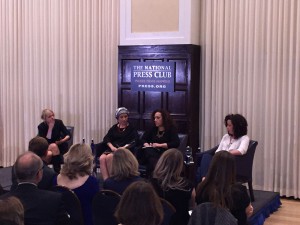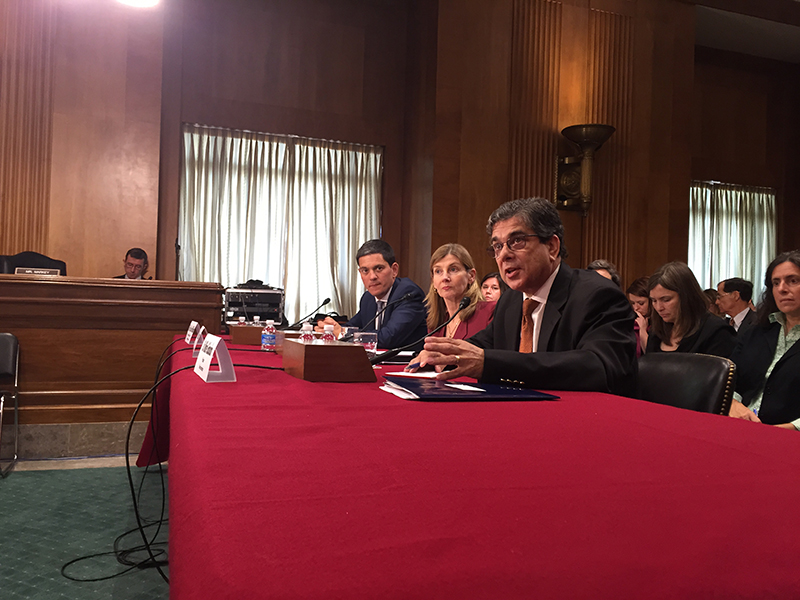
Erhaim and top Washington foreign editors discuss national security threats in Syria. (Sara Shouhayib/ MEDILL NSJI)
Erhaim was honored with the Peter Mackler Award on Thursday at the National Press Club.
The award honors courageous and ethical journalism by reporters and editors who have demonstrated a commitment to fairness, accuracy and speaking truth to power and asserting their right to publish or air their stories in countries where independent journalism is under threat.
Erhaim works to bring Syria’s stories to people around the world by reporting from inside the country herself and training others Syrian citizens to be reporters. In Syria, international news organizations and freelance reporters have left the country due to journalists’ beheadings by the Islamic State and threats for being there.
As the director of the Institute for War and Peace Reporting, which supports journalists in countries undergoing conflict, crisis or transition, she has trained dozens of Syrians on how to report and produce stories, many of which have been published by news organizations outside Syria. She began working for IWPR in 2013, after reporting for the BBC.
After receiving the award at the National Press Club event, Erhaim shared her experiences in Syria during a panel discussion that included Miriam Elder, world editor of Buzzfeed News, Hannah Allam, a foreign policy reporter for McClatchy Newspapers, and Louise Roug, global news editor of Mashable.
Erhaim noted that other countries only recently began to seriously address the Syrian refuges crisis.
“I think in terms of the refugee crisis that it only became a crisis because it hits the EU, even though it’s been hitting Jordan, Beirut and Turkey for so long,” Erhaim said.
Allam agreed that Syrian migration should have been more widely covered sooner, emphasizing that Syrian President Bashar al-Assad is a bigger reason than the rise of the Islamic State for Syrians to leave their country.
“I think it’s been really good in the recent interest in the refugee issue that there have been a number of stories pointing out that… I don’t think it’s a stretch to say that here it’s easy to imagine that they’re all fleeing ISIS, but when you actually talk to them they say by and large, they’re fleeing the barrel bombs,” Allam said.
Erhaim agreed, saying some Syrians consider ISIS-occupied territories as some of the safest parts of the country because the Assad regime won’t bomb those areas.
She criticized the news media’s attention on ISIS for giving the terrorist group exactly what it wants – a propaganda megaphone.
Reporting in Syria requires different approaches than in Western countries.
Erhaim said she used men, most often her husband, to conduct interviews with other men because they would not speak directly with a female reporter.
Further information about the IWPR and how it operates can be found at https://iwpr.net/.






